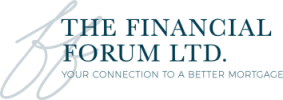You may have heard the term “House Poor” and are wondering exactly what it means and how did you become House Poor when you started out wanting to be House Rich! The CMHC suggests 2 affordability rules: 1) monthly housing costs shouldn’t be more than 32% of your gross monthly income, or 2) your entire monthly debt load should not be more than 40% of your gross monthly income. As a general rule, House Poor is when you spend over 32% of your income on housings costs or over 40% of your income on monthly debt load.
Gross household monthly income can include:
- Salary
- Support payments
- Canada Pension Plan (CPP)
- Investments or other non-employment sources such as income from a renter or boarder
Housing costs can include:
- Monthly mortgage payments (principal and interest)
- Property taxes
- Utilities
- Condo fees (if applicable)
Other monthly debt:
- Monthly line of credit or personal loan payment
- Monthly credit card payment
- Monthly student loan payment
- Any other monthly payments
Have you determined whether or not you are considered house poor?
There are other indicators to assist you in accessing your situation such as, more stress over finances, feeling overwhelmed and trapped in dealing with any money situation, fear of losing your home or acquiring even more debt by increased borrowing. You may not always be house poor, but many times, life happens and we find we are not prepared. Some reasons you have found yourself house poor could be lack of financial planning, change in careers with a lower salary, relationship changes or spending beyond your means; even some wonderful changes in your life could cause you to become house poor like having children, pets (they can get expensive too), children’s education or weddings, or maybe you simply bought more house than you could afford.
What can you do about being house poor? The first step is to access all of your finances and write down everything on paper to get a realistic picture of where you stand. You may want to talk to a financial planner, accountant, mortgage broker or bank to seek advice. You may have got your mortgage with a high mortgage rate and you may want to consider renewing or refinancing your mortgage with another lender, by getting the best mortgage rates, you can save thousands over the life of your mortgage. If you have a lot of credit cards and high-interest debt, you may want to consider consolidating all your debts into your mortgage.
You may want to consider downsizing if you find you can no longer afford your home. It’s not a happy thought, but your health and peace of mind are far more valuable than a house. You may think downsizing is for homeowners that are older, but not so. You no longer have to be of retirement age to downsize, and more and more people are choosing this option after finding out they cannot afford their home or circumstances changed.
If you are a first-time homebuyer, make sure you find out how much you can afford before buying a home and remember, just because you may get the mortgage, does not mean you can afford it. It’s great to be excited and happy about a house, but make sure you are realistic in what you can TRULY afford. If you are looking for the best mortgage rates, we hope you take advantage of finding great rates on this website. For your convenience, we have a mortgage affordability calculator that can be one of the tools to assist you in determining how much house you can afford.
Inquire About these Low Rates
You can contact The Financial Forum at 905-265-0246, or email us at mortgages@thefinancialforum.ca. You can also find a contact form, as well as a map to our office, on our contact page.
Should you Refinance your mortgage?
The first step you will want to take is to start doing some research on the options that are available. You should compare interest rates, loan terms as well as incentives to determine what type of agreement best suits your needs. As with any mortgage, you need to be especially concerned with the rate of interest. Even a very small fraction of a percent can result in thousands of dollars being lost or gained over the term of the loan.
While there isn’t a sole answer to the question should I refinance, ensuring that you have the best rate and terms available to you is definitely going to be a necessity. If your time is tight, you may want to consider enlisting the services of a mortgage broker to save you money. Mortgage brokers spend the majority of their time working with financial institutions and know the ins and outs of the current rates and available terms. This puts a good broker is in an excellent position to save you thousands if not tens of thousands of dollars over the term of your loan.
Te experienced brokers at The Financial Forum can help you find the right mortgage and refinance rates. Our unique online interest rate comparing system lets mortgage brokers compete for your business so that you get the lowest interest rates in the market and our line rating system ensures that are choosing a reputable, seasoned professional to help you meet your financial needs.





